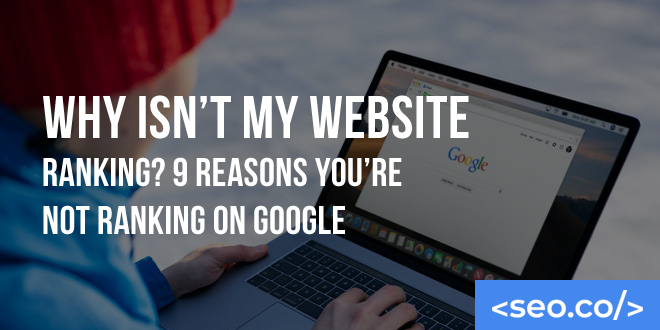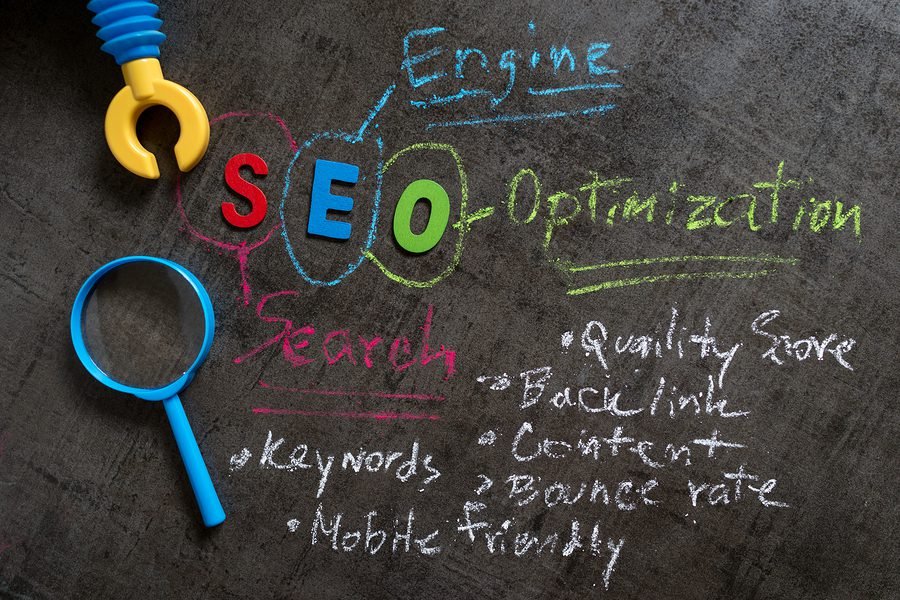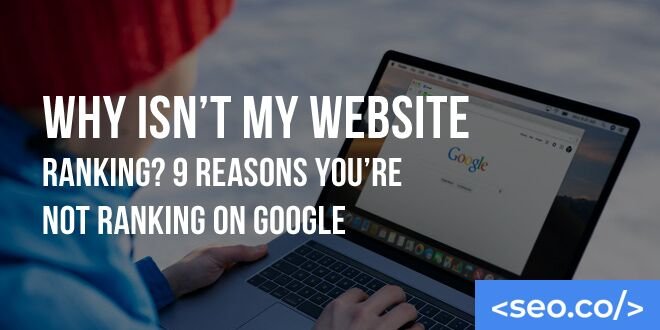Your website Ranking may not be ranking due to various reasons including poor SEO optimization and lack of relevant content. To improve your website’s ranking, focus on optimizing keywords, improving site structure, and creating high-quality and engaging content.
A well-designed website with a responsive layout, fast loading speed, and mobile-friendliness can also contribute to better rankings.
Understanding Search Engine Rankings
Rankings play a crucial role in the success of a website. Understanding the factors that influence rankings is essential. Search engines take into account various aspects like keyword relevance, quality backlinks, and user experience. To rank high, focus on optimizing on-page elements, producing high-quality content, and building authoritative links.
A slow website, lack of relevant keywords, and poor user experience are common reasons for low rankings. Ensure your website is mobile-friendly, has fast loading speed, and engages users. Invest time and effort into keyword research, optimizing meta tags, and improving site structure.
Regularly monitor and analyze your website’s performance to make necessary improvements and boost rankings. With strategic SEO efforts, your website can climb the search engine rankings and attract more organic traffic. So stay updated, optimize, and keep improving to see your website rise in the search results.
Technical Issues Impacting Website Ranking
Technical issues can significantly impact the ranking of your website. One such issue is the website loading speed and performance. A slow-loading website can lead to a poor user experience and can negatively affect your search engine rankings. Another important factor is having a mobile-friendly design and responsiveness.
With the increasing number of mobile users, search engines give priority to websites that are optimized for mobile devices. Lastly, indexing and crawlability issues can hinder your website’s visibility. Ensure that search engines can easily crawl and index your website’s content by submitting your sitemap and checking for any errors or issues.
By addressing these technical issues, you can improve your website’s ranking and increase its visibility to potential visitors.
Content And On-Page Optimization
Ensuring a high-ranking website involves focusing on content and on-page optimization. One key aspect is creating high-quality, relevant content that engages users. This includes conducting thorough keyword research and optimization to target the right audience. Additionally, optimizing meta tags, headings, and internal linking strategies play a crucial role in improving search engine visibility.
By carefully crafting content that aligns with user intent and implementing effective on-page optimization techniques, you can boost your website’s ranking in search results. Emphasizing quality and relevance in your content while implementing best on-page practices will help increase your website’s visibility and attract more organic traffic.
Backlinks And Off-Page Optimization
One key reason for your website not ranking could be a lack of backlinks and off-page optimization. Backlinks are vital for website ranking as they act as endorsements from other websites. Acquiring quality backlinks should be a priority, focusing on reputable and relevant sources.
Additionally, social signals such as shares, likes, and comments can also help improve your online reputation. It’s important to engage with your audience and encourage them to interact with your content. By implementing strategies to obtain high-quality backlinks and managing your online reputation, you can enhance your website’s chances of ranking higher in search engine results pages.
Remember, off-page optimization plays a crucial role in improving your website’s visibility and organic traffic acquisition.
Monitoring And Analyzing Website Performance
Analyzing website rankings and user behavior is essential to understand why your site isn’t ranking. By using tools for tracking website rankings and traffic, you can gain valuable insights into keyword optimization, backlink profiles, and overall site performance. With these analytics, you can make data-driven improvements to your website, such as optimizing content, improving site speed, and enhancing user experience.
Tracking user behavior helps you identify any issues or bottlenecks that might be affecting your site’s ranking. By continuously monitoring and analyzing your website’s performance, you can stay ahead of the game, make necessary adjustments, and improve your chances of ranking higher in search engine results.
Strengthen your online presence by understanding and acting upon the data provided by these tools.
Staying Ahead Of The Competition
Are you wondering why your website isn’t ranking? Staying ahead of the competition is crucial. Conducting competitor analysis and benchmarking will help you identify and utilize opportunities. Continuously optimizing and maintaining your website is key. Stay proactive and watch your rankings soar.

Credit: seo.co
Frequently Asked Questions Of Why Isn’T My Website Ranking?
Why Is My Website Not Ranked?
Your website may not be ranked due to various factors such as low-quality content, inadequate backlinks, and technical issues.
Why Isn’T My Site Ranking On Google?
Site ranking on Google depends on various factors including high-quality content, relevant keywords, proper website optimization, and backlinks.
How Long Does It Take For A New Website To Rank?
A new website can take several months to rank on search engines. The exact time depends on various factors such as website quality and competition.
Why Is Content Not Ranking?
Content may not rank due to various reasons, such as poor optimization, lack of quality backlinks, heavy competition, or insufficient user engagement.
Conclusion
Website ranking is a complex process that requires continuous efforts and optimization. By following the guidelines mentioned, such as focusing on high-quality content, optimizing for relevant keywords, improving website speed and user experience, and building authoritative backlinks, you can increase your chances of ranking higher in search engine results.

Remember that SEO is an ongoing process, so regularly monitoring your website’s performance and making necessary adjustments is essential. Additionally, it’s crucial to stay up to date with the latest trends and algorithm changes in the SEO industry. By staying informed and implementing effective strategies, you can overcome the challenges and improve your website’s ranking.
Start implementing these strategies today, and soon you’ll see your website climbing the ranks and gaining more visibility in search engines. So, take action, stay consistent, and enjoy the rewards of a well-ranking website.

I have been working as an SEO Expert in Bangladesh for a long time and now providing the best SEO Service in Bangladesh. With the approach to Semantic SEO that eschews superfluity. I can get your business web page at the top of the SERP list. Using the latest digital marketing trends, I can enhance your online visibility and drive more website traffic.

